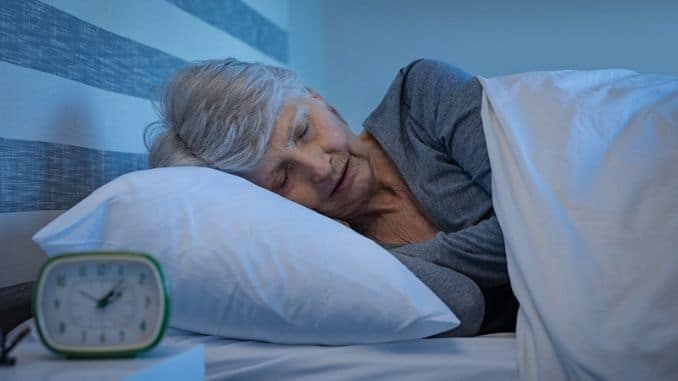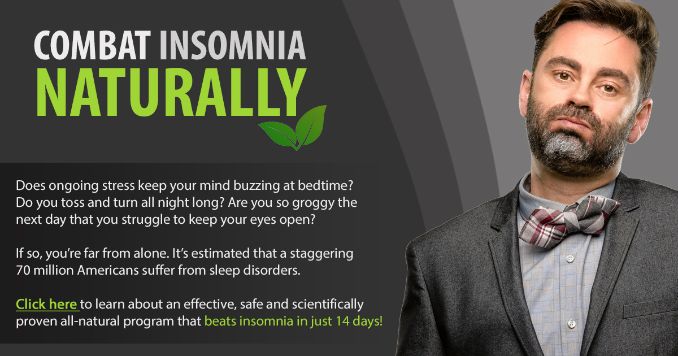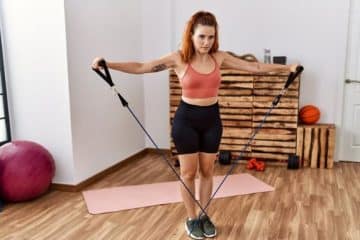In this article, she discusses the 3 ways on how we can improve our sleep, discusses the hormones active during our sleeping and waking hours, and addresses what causes a poor sleeping pattern.
There are certainly lots of other ways of improving sleep but we will start with the ones you can do yourself for free in your own home. The information that we are sharing is for your education only and it is not designed to diagnose or treat you.
It does not replace the care of a physician and if you're struggling with health issues, we strongly advise you to seek the care of a licensed physician who can examine and determine the best course of action for you.
Sleep is a truly massive topic. There are plenty of things to talk about concerning sleep. Since we are talking about sleep, we also want to think about the different hormones involved.
Hormones that keep us awake:
- Serotonin
- Histamine
- Norepinephrine
- Orexin
- Acetylcholine
Hormones that support us to stay asleep:
- GABA (Gamma-Amino Butyric Acid)
- Melatonin
- Adenosine
- Galanin
Cortisol and Melatonin

There’s a variety of hormones that play here and we are going to simplify them and discuss cortisol and melatonin. The 2 main hormones that we think about when we are trying to correct the disturbed sleep cycle. Cortisol wakes us up, while melatonin helps us sleep.
There are tests that we can order that will determine what our cortisol rhythm is during the day. Many with sleep troubles feel exhausted during the day but wide awake at night. One of the tools you can use to improve sleep and reset that is to avoid napping. Napping is tough because if you're really fatigued, a nap can help you function.
Naps, especially during Sleep Restriction Therapy, can hinder our efforts to train the body. Minimize naps to train your body to sleep deeply when needed. “Sleep latency” refers to the time it takes to fall asleep, typically 30 minutes or less.
If you’re taking more than 30 minutes to fall asleep at night you have longer sleep latency.
Are you feeling tired today?
A recent news article stated that 55% of women aged 18 to 64 experience sleep difficulties. That is already over half of us and that’s a lot! You may think whether this is a really big concern. It is!
Things that our body do during sleeping:
- restore damaged DNA
- synthesize our emotions
- healing and repair of our damaged tissues that we gain from wear and tear during the day
Inadequate or poor-quality sleep leaves us feeling tired and functioning poorly the next day. There are also many health associations with poor quality sleep.
Associations of poor quality of sleep:
- obesity
- type II diabetes
- cardiovascular disease or heart disease
- injuries – just being tired makes you more susceptible to injury
- death from all causes – we have a higher incidence of death if we are not sleeping enough
- higher incidence of depression
- irritability
3 Ways To Support Good Quality of Sleep
- Reset the circadian rhythm
- Stop the disruptors and support sleep hygiene
- Sleep Restriction Therapy
1. Resetting the Circadian Rhythm
What is Circadian Rhythm?

Circadian Rhythm is a therapy that is designed for people who have dysfunctional sleep patterns and to help them get back on track. When the light or sun goes down and the moon is out, this stimulates our melatonin production. Some people also take melatonin supplements to encourage their bodies to be sleepy at night.
Think back to when you were a child. What was your sleep routine?
All of these things are set to really help you to get the melatonin activated so you could have a nice easy passage in the sleep.
But what is our routine now?
How many of you are watching action-packed TV shows leading up to bedtime then crawling into bed and wondering why you can't fall asleep? We are not as tuned into that nice routine that really sets us up for falling asleep.
Resetting the circadian rhythm
Many people do shift work or who are working odd hours. Some work from home and stay very late at night working so they're also going to sleep late. The next night, feeling extremely tired, they might go to bed early, but these strategies don't support a normal circadian rhythm. We really want to be as regular as possible.
Something as simple as just having a regular bedtime and a regular wake-up time can really help improve sleep to produce our own natural melatonin at night and stimulate our cortisol to wake us up in the morning.
If you're not doing this one yet, then you might consider trying to set a regular bedtime regardless of what you're doing, regardless of whether you have work to do.
Put your work away, go to bed and try to really create that bedtime so that your hormones learned that when it's 10 p.m., it's time for sleep and when it's 7 a.m., it’s time to wake up.
We really want to train our bodies to do this all by itself and that we are not relying on supplements and things to help do the work for us. The easiest way on resetting your circadian rhythm is to have a regular bedtime and regular wake-up time to improve sleep.
How to deal with Shift work?
Shift work is a bit of a challenge for sure. Some people will take melatonin when they are sleeping during the day to try to train their body into having that sleepy state during the daytime. Shift work is really not ideal though some of us have to do it to get through our lives, it does pose unique challenges in getting adequate rest to improve sleep. You can anytime talk with a health practitioner if you want to learn more about how you may support yourself with shift working.
2. Address sleep hygiene and minimize those disruptors
What are the sleep disruptors?
a. Light
the quality of light makes a huge difference in whether or not our melatonin can do what it needs to do. An example of this is the blue light coming from the computer.
It’s okay if the blue light is shining on your face when you’re sitting in front of your computer in the daytime, but it’s not advisable during the night time especially before bedtime as it will disrupt your normal ability to produce melatonin.
Blue light comes from our cell phones, iPods, or e-readers. There are devices where they have a night shift mode where it will naturally turn your phone light into a more amber-colored light. If you are using your computer, there are different programs you can install where you get some kind of light filter for your computer screen.
One is called F.LUX. It is an app or utility setting and it just runs your computer screen where it automatically turns your computer screen into more of the amber light. Computers and TV’s are all lights that we don't want in our eyes at night. Choose to use a device that has at least a night mode or a yellow light function.
b. Noise
It is a factor for sure and one of the easy ways that we can support that is using earplugs to improve sleep. You can buy inexpensive foam earplugs almost anywhere. Another thing you can try is white noise to improve sleep. This is a phone app that you can download for free. You can run an app like this just to create that ambient noise that really helps you numb out all of the other sounds that may keep you awake.
c. Activity and stress
If you have a partner and you’re having a heated conversation before bed, that’s going to be disruptive to your melatonin. As much as possible try to keep bedtime evening mellow, calm, and relaxed. You might do some readings, meditation, or talk about things in your day that you like.
Some pieces of evidence having a gratitude journal right before bed where you write down the things about the day that you are grateful for can be good for your sleep because it helps create a nice, calm state of mind that produces those good relaxed hormones in our systems.
Some things that people are finding is that even just having a cup of tea before bed or having dinner too far away before bedtime can be disruptive to sleep because you’re waking up at night either you are hungry or having to use the bathroom. Consider the fluids that you are drinking before bed.
Certain foods will help to stabilize your blood sugar during the night so you will not be waking up hungry. We usually recommend a protein snack like almonds or a bit of meat or you go for the classic glass of milk before bed. Some other things that you can do to create that calm state of mind is taking a nice warm bath. This can really be very relaxing especially if you're soaking in some Epsom salt. Epsom salt is a source of magnesium. Magnesium is a muscle relaxer so if you're feeling anxious or tense before bed, a nice Epsom salts soak can be really nice as a way to get relaxed before bedtime. Many people use essential oils for their calming and relaxing effects.
3. Sleep Restriction Therapy

This is a therapeutic modality that many clinics are offering to patients and this is where we intentionally limit the amount of time you're in bed to improve sleep. This may sound counterintuitive because if we are tired, we want to be in bed more, but it turns out that that's actually not always helpful. Sleep restriction is where we limit the number of hours that we’re allowed to be in bed to usually around six hours or so at night.
This means that if you’re going to bed at 10 p.m. but you’re not falling asleep until 12 midnight but then you need to wake up at 7 a.m. and you are not refreshed and you're feeling lousy, we can actually tighten that time you're actually allowed to be in bed to retrain your body to be more efficient at sleeping.
Basically, that's what sleep restriction therapy does. It helps to make you more efficient sleepers so by the time you are in bed, you're fully asleep making you feel better the next morning as you're able to restore your body better and you get lots of its benefits. The ideal sleep restriction is usually around the six-hour window. If you're a person who has no trouble falling asleep but you’re waking up at 4 AM, we might intentionally switch your morning wake-up times so that we’re optimizing your sleep quality.
Basically, we would probably recommend for someone who’s a dysfunctional sleeper to try to sleep between 11 p.m. and 5 a.m. and get that six-hour window.
What this does is over time you will find an improved quality of your sleep, improved sense of well-being and then you can start extending the hours that you are in bed because your body has learned how to sleep better.
About Sleep Restriction Theraphy
One thing about Sleep Restriction Therapy is that it does tend to have the effect of making you sleepier while your body is being trained. If you decide to try this on your own and you find that you’re more tired, that's part of how it typically goes.
It does take several weeks for your body to come and start to get those hormones in line and start to do what it needs to do so you get the benefits from it to improve sleep.
It can be a period of sleepiness for few weeks before you start to really get into it and start to reap the benefits. You just have to give it a really good trial, stick with it for at least a month to see those benefits. Sleep Restriction in terms of efficacy from a research perspective is that it is more effective than sleep medications, and its effects last longer.
If you're currently taking a drug or pharmaceutical medication to support sleep at night, you might start considering Sleep Restriction Therapy or consult a health practitioner who can guide you. If your goal is to get off of your sleep medication or if your sleep medication is not as effective as you would like or if it leaves you feeling groggy in the morning, then Sleep Restriction Therapy might be a really good option for you to try.
Underlying causes for sleep disturbance:
- Hormone imbalances
- Nutritional deficiencies
- Chronic pain
- Anxiety
- Depression
- Medications
Many medications cause insomnia as a side effect. After all of these being said, if you're still struggling with feeling tired during the day and these options are not helpful for you then it might be a really good idea to meet up with a health practitioner in your area and discuss some of the other underlying potential causes that could be causing poor sleep.
Dr. Erica Volk is a licensed naturopathic doctor with the British Columbia Naturopathic Association (BCNA) and the Canadian Association of Naturopathic Doctors (CAND).
Ready to transform your sleep for good? Introducing our 14-Day Sleep Improvement Quick Start Program Digital Download! Say goodbye to restless nights and hello to rejuvenating sleep. Take the first step towards better rest today! Download now and embark on your journey to a well-rested, energized you!





